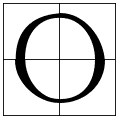Member-only story
The Forgotten Coup That Helped Hitler Consolidate Power
The Preußenschlag of 1932

 One often disseminated myth is that Adolf Hitler achieved power through democratic means. This is partially true, since the Nazi Party won a plurality of votes and seats in Germany’s last free and fair federal election of November 1932. However, since the Nazis were unable to form a government on their own and refused to forge coalitions with any other political party, Hitler ordered his paramilitary forces to wreak havoc throughout the country.
One often disseminated myth is that Adolf Hitler achieved power through democratic means. This is partially true, since the Nazi Party won a plurality of votes and seats in Germany’s last free and fair federal election of November 1932. However, since the Nazis were unable to form a government on their own and refused to forge coalitions with any other political party, Hitler ordered his paramilitary forces to wreak havoc throughout the country.
Convinced by political elites like Franz von Papen that putting Hitler in power could muzzle the Nazi threat, President Paul von Hindenburg invoked Article 48 of the German constitution and used its emergency powers to appoint a government without the assent of the legislature. Hitler was subsequently sworn in as chancellor on 30 January 1933, signaling the beginning of the end of electoral democracy in Germany for two decades. Was this process technically legal? Yes. Democratic? Definitely not.

What is less known is how just a few months before the political maneuvering that brought Hitler to power, then-Chancellor Franz von Papen had used Article 48 to conduct an egregious blow against Germany’s fragile democracy. On 24 April 1932, Prussia, the largest constituent state of the German Reich, held its state elections. Owing to its political stability throughout the turbulence of the 1920’s, Prussia was quite an anomaly. Since 1920, it had been governed by a stable coalition of the German State Party, the Center Party and the Social Democratic Party.
Unfortunately, with the rapid rise of the Nazi Party in the late 1920’s and early 1930’s, the Prussian governing coalition lost its majority. Out of 423 seats, the Nazi Party captured 162, its DNVP allies 31, the SPD-Center-State coalition 169, and the Communists 57. Under the Prussian constitution, if a government lost its majority position in the legislature, it would remain in power until a “positive” majority could be found. Subsequently, the government of Social Democrat Otto Braun was to stay until the formation of a workable coalition.